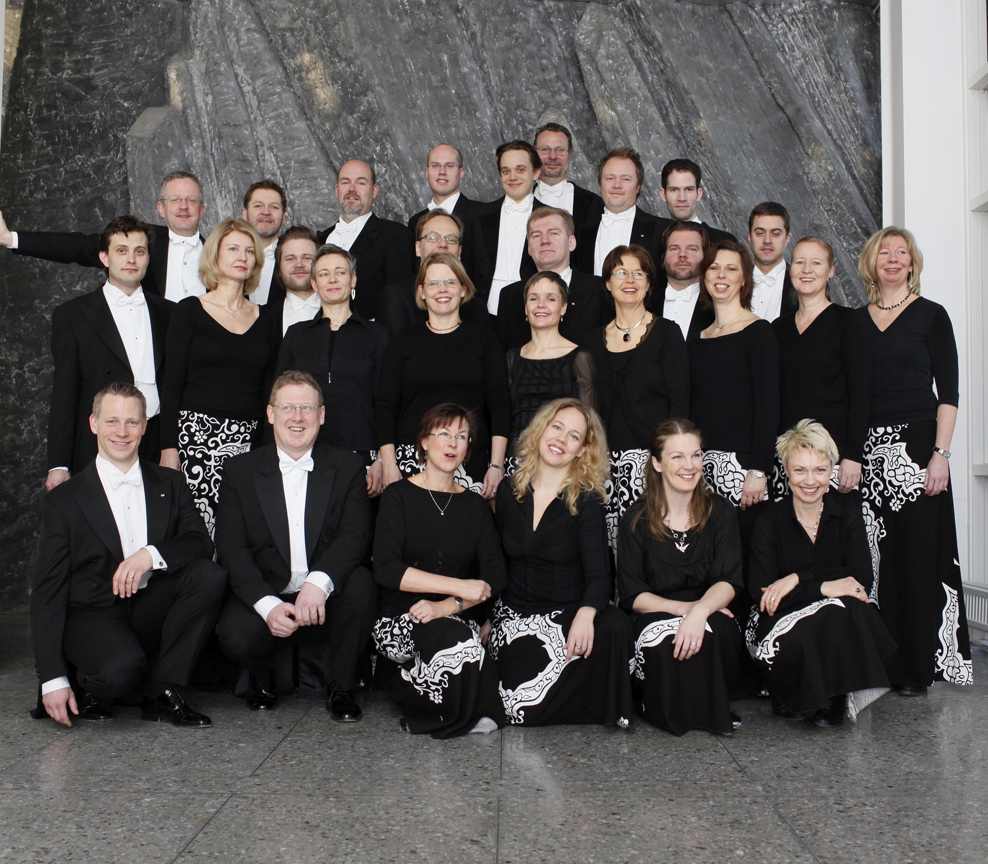Swedish Radio Choir soars in wide-ranging program
The composer Ingvar Lidholm once defined the Scandinavian brand of choral singing as “an absolutely even, equalized sound, in which every singer consents to relinquish his or her own personality in favor of the choir’s.” While said roughly a decade ago, it’s difficult to imagine a more fitting description of the Swedish Radio Choir today, whose 32-voice instrument is truly a cohesive musical force.
In their terrific concert Tuesday night at the suitably grand Fourth Presbyterian Church downtown, the a cappella ensemble offered a wide-ranging program under guest conductor and San Francisco Symphony chorus director Ragnar Bohlin.
Although the SRC is adept at making music from all corners of the globe, these Swedes are at their finest when they dig into works from their Scandinavian compatriots. Hugo Alfven’s free-wheeling Aftonen commanded one’s attention with its slivers of melody rising over easy swaying accompaniments, like that of an American spiritual.
All evening the altos and sopranos were impeccable with their tonal precision. Sven-David Sandstrom’s Lobet den Herrn, based on a text from Bach’s motet of the same name, showed the choir’s affection for experimentation; here stagnated bursts of notes projected out into the cathedral like drops of rain hitting a windshield.
Easily the evening’s most mesmerizing work was a wordless panorama of sound from Stockholm-born Anders Hillborg. Mouyayoum, in fact, hardly registers as music sung by people. More like that of effects pedals, Hillborg’s timbral collage approximates a family of woodwinds than human voices, and the effect was wholly seductive.
The most dexterous works came from Ned Rorem and Gustav Mahler. The soprano’s vocal leaps in the former’s In Time of Pestilence were deployed effortlessly, as if a rudimentary warm-up. Yet the Austrian’s Ich bin der Welt abhanden gekommen, as arranged for sixteen part choir by Clytus Gottwald, lost too much of its personality without the accompanying orchestra and mezzo. And while by no means a poor performance, Bach’s popular and briskly paced Singet dem Herr nein neues Lied came off less cleanly drawn and articulately separated than the rest.
Before their visionary conductor Eric Ericson came onto the scene in 1952, singing a work by Frank Martin would have been unheard of. The choir was slow to embrace the modernists of their day, but they are now recognized as an institution that actively promotes them. Martin’s Mass for Double Chorus is a hefty–if not relentlessly solemn–work, and the chorus delivered with stentorian might. The music sneaks in some chromaticism and other tonal oddities but never loses its sense of the past. It’s a shame a wailing ambulance on Michigan Ave marred the closing bars of the Credo.
Bohlin lavished the grateful audience with two lighthearted encores.
Posted in Performances





